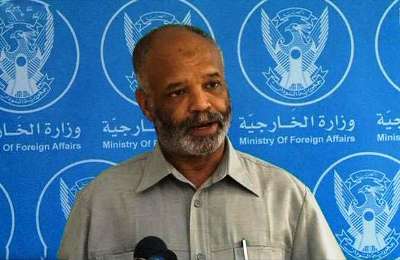Khartoum ready to continue dialogue with Washington: Sudan’s FM
November 15, 2016 (KHARTOUM) – Sudan’s State Minister for Foreign Affairs Kamal Ismail said on Monday that Khartoum is ready to resume the dialogue process with Washington.

The United States has imposed economic sanctions against Sudan since 1997 and has frozen all Sudan’s government assets in USA.
Last Sunday, U.S. President-elect Donald Trump adviser for Africa and the Middle East Walid Phares said “There is no reason for why we and our European allies lifting the sanctions. Lifting the sanctions on Bashir’s regime is not acceptable”.
In a telephone call to American-Sudanese from the Nuba Mountains area of South Kordofan State before the presidential election, Phares said that if Trump is elected his administration would appeal to the international community to start putting a policy that would address and stop the “drama” of Sudan and South Kordofan particularly.
According to the semi-official Sudan Media Centre (SMC), the Sudanese diplomat expected that relations with America would head in the right direction during coming period. he stressed that Sudan extends its hand to complete the previous understanding with US, pointing to the cooperation between Khartoum and Washington on political and security issues.
The Sudanese minister called to be objective when it comes to discuss normalization process , “the relations with the United States must be based on equality and common interests,” he said.
Last October, President Barak Obama extended Sudan’s sanction for another year saying that actions and policies of the Sudanese government continue to pose an unusual and extraordinary threat to the national security and foreign policy of the United States”.
In the past, Washington promised Khartoum to lift sanctions after implementation of the Comprehensive Peace Agreement (CPA) of 2005, which led to the secession of South Sudan in 2011, but later demanded Sudan’s government to put an end to Darfur crisis and the conflict in South Kordofan and Blue Nile states.
